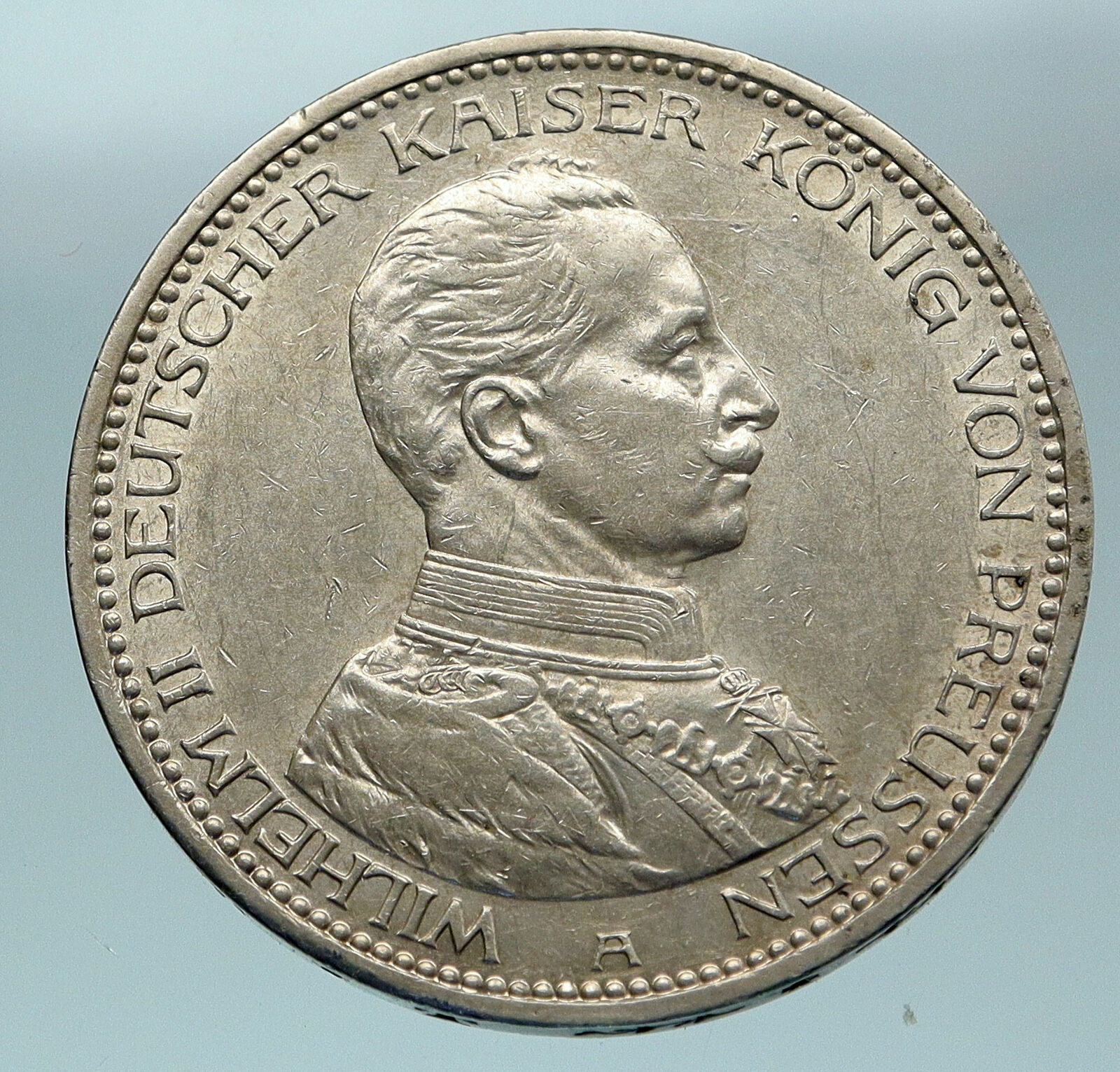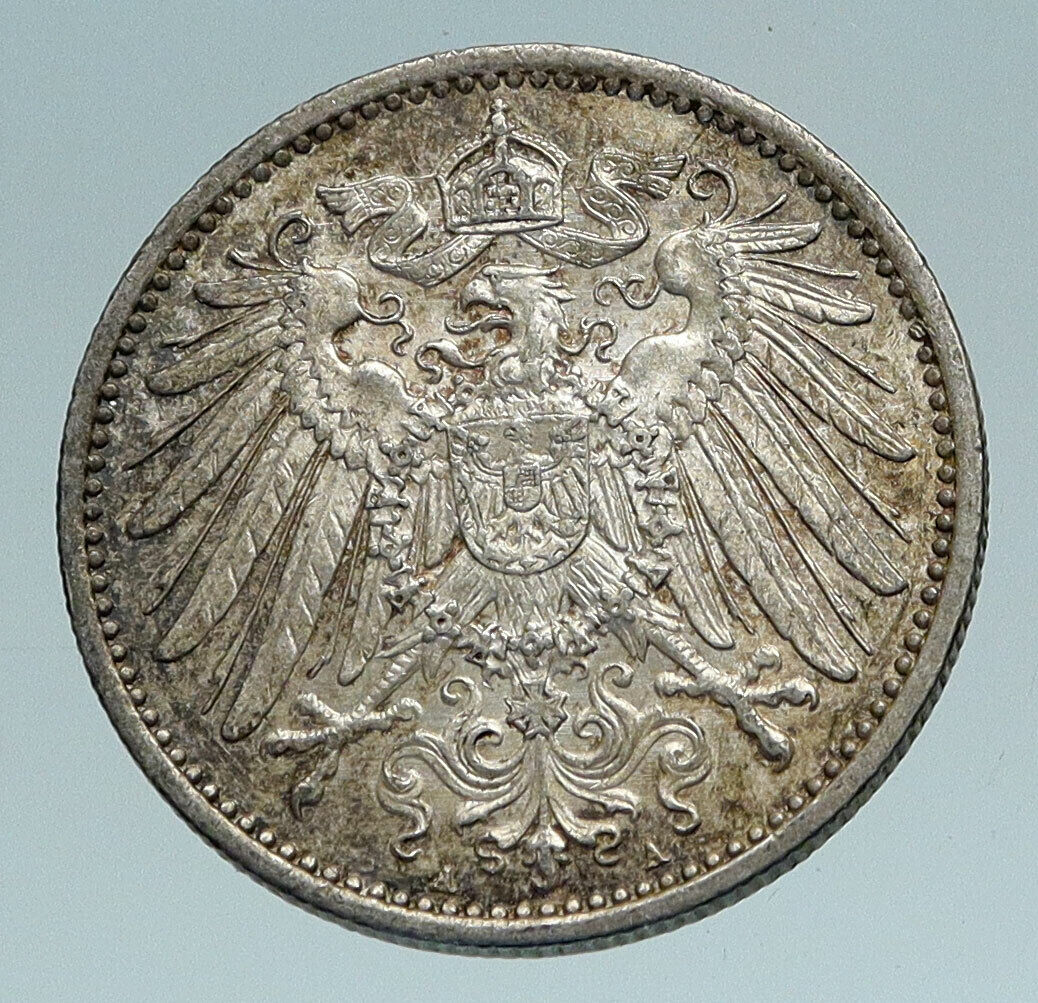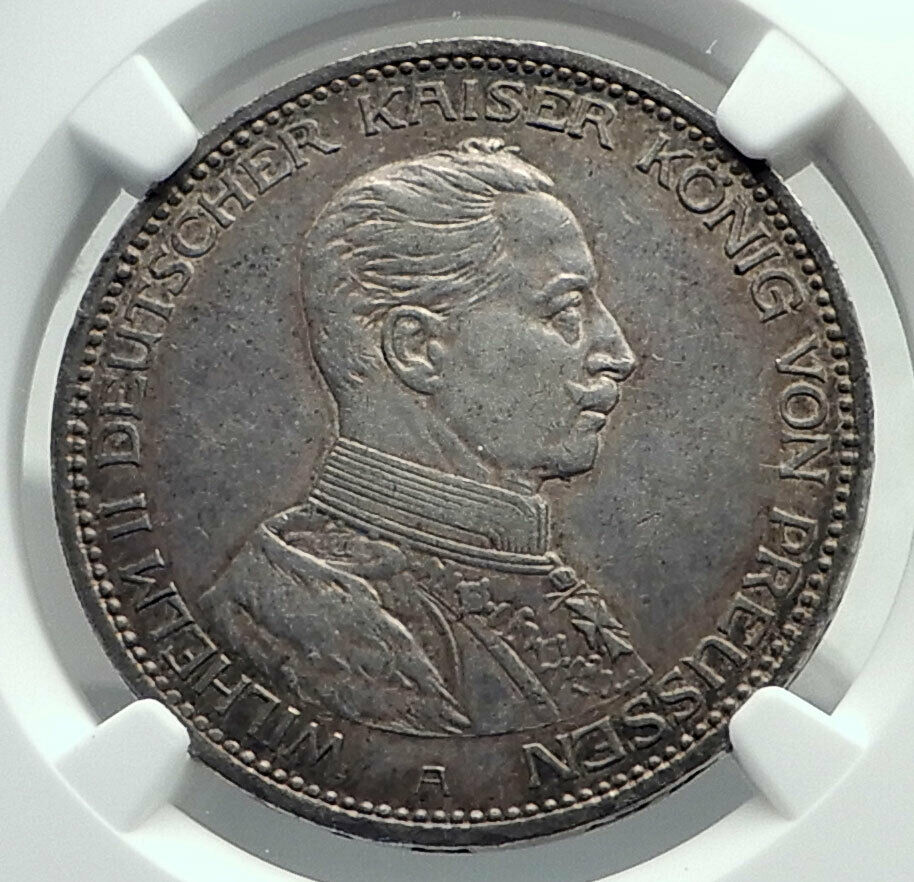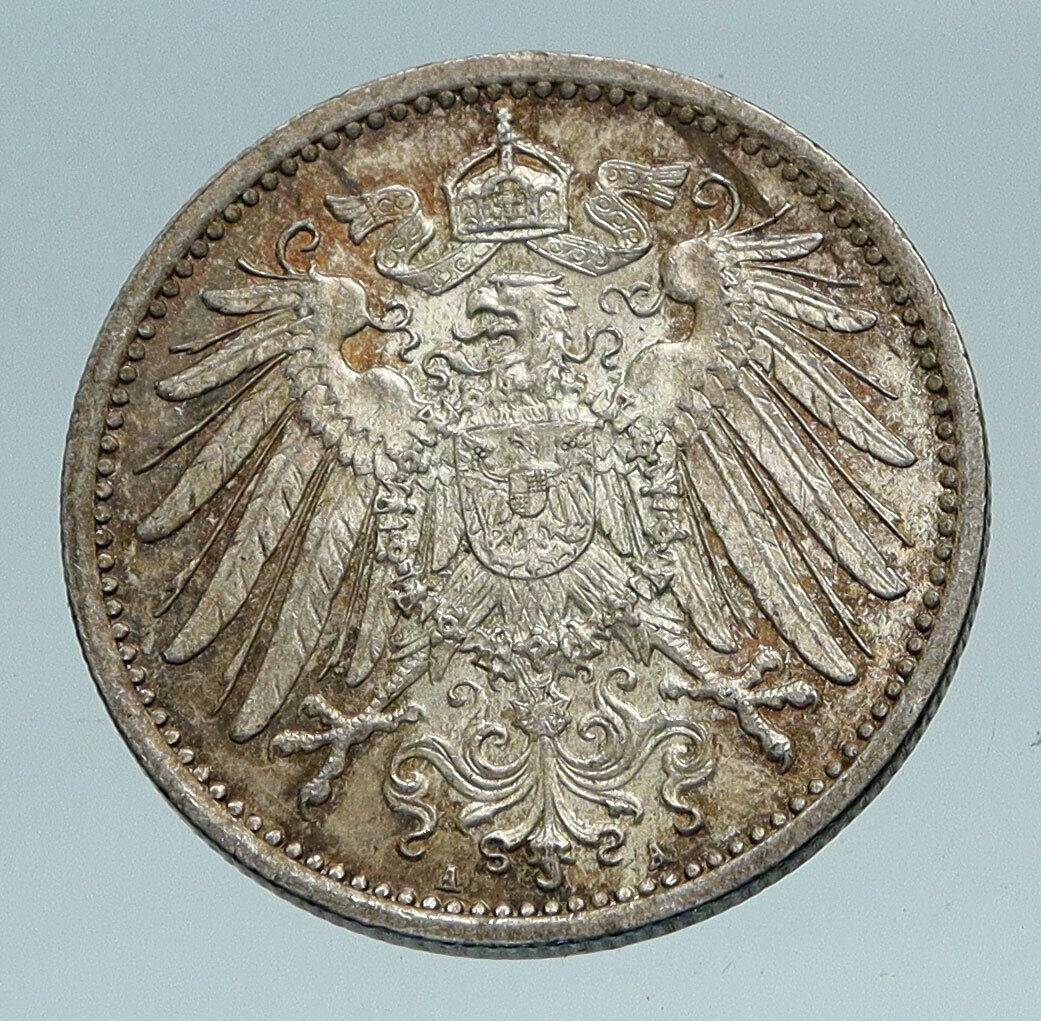|
German States – Mecklenburg-Schwerin
Frederick Francis II – Grand Duke: 7 March 1842 – 15 April 1883
1864 A Copper 3 Pfennige 19mm (2.38 grams)
Reference: KM# 310, AKS# 48
FF, Crowned monogram.
3 PFENNINGE 1855 A, Inscription in three lines.
You are bidding on the exact item pictured, provided with a Certificate of Authenticity and Lifetime Guarantee of Authenticity.
 Frederick Francis II (German: Friedrich Franz II; 28 February 1823 – 15 April 1883) was a Prussian officer and Grand Duke of Mecklenburg-Schwerin from 7 March 1842 until 15 April 1883. Frederick Francis II (German: Friedrich Franz II; 28 February 1823 – 15 April 1883) was a Prussian officer and Grand Duke of Mecklenburg-Schwerin from 7 March 1842 until 15 April 1883.
He was born in Schloss Ludwigslust, the eldest son of Hereditary Grand Duke Paul Friedrich of Mecklenburg-Schwerin and his wife Princess Alexandrine of Prussia. He became heir apparent to the grand duchy following the death of his great-grandfather Frederick Francis I on 1 February 1837. Frederick Francis was privately educated until 1838. He then attended the Blochmann institute in Dresden before going to the University of Bonn. Frederick Francis succeeded his father as Grand Duke on 7 March 1842.
Frederick Francis served on the general staff of Generalfeldmarschall Friedrich Graf von Wrangel during the Second Schleswig War. During the Austro-Prussian War he commanded the forces that occupied Leipzig and lay siege to Nuremberg. He also took part in the Franco-Prussian War, during which he was made Governor-General of Reims and commanded the German forces laying siege to Toul. He defended the Prussian forces during the Siege of Paris from attack by the Army of the Loire. He defeated French forces at the battles of Beaune-La-Rolande and Beaugency. He was a maternal first cousin of both German Emperor Frederick III and Russian Tsar Alexander II. He held the rank of Prussian general and was also a Russian General Field Marshal.
Frederick Francis died on 15 April 1883 in Schwerin. He was succeeded as Grand Duke by his eldest son Frederick Francis III.
 Germany, officially the Federal Republic of Germany, officially the Federal Republic of  Germany is a federal parliamentary republic in western-central Europe. It includes 16 constituent states and covers an area of 357,021 square kilometres (137,847 sq mi) with a largely temperate seasonal climate. Its capital and largest city is Berlin. With 81 million inhabitants, Germany is the most populous member state in the European Union. After the United States, it is the second most popular migration destination in the world. Germany is a federal parliamentary republic in western-central Europe. It includes 16 constituent states and covers an area of 357,021 square kilometres (137,847 sq mi) with a largely temperate seasonal climate. Its capital and largest city is Berlin. With 81 million inhabitants, Germany is the most populous member state in the European Union. After the United States, it is the second most popular migration destination in the world.
Various Germanic tribes have occupied northern Germany since classical antiquity. A region named Germania was documented before 100 CE. During the Migration Period the Germanic tribes expanded southward. Beginning in the 10th century, German territories formed a central part of the Holy Roman Empire. During the 16th century, northern German regions became the centre of the Protestant Reformation.
The rise of Pan-Germanism inside the German Confederation resulted in the unification of most of the German states in 1871 into the Prussian-dominated German Empire. After World War I and the German Revolution of 1918-1919, the Empire was replaced by the parliamentary Weimar Republic. The establishment of the Third Reich in 1933 led to World War II and the Holocaust. After 1945, Germany split into two states, East Germany and West Germany. In 1990, the country was reunified.
 In the 21st century, Germany is a great power and has the world’s fourth-largest economy by nominal GDP, as well as the fifth-largest by PPP. As a global leader in several industrial and technological sectors, it is both the world’s third-largest exporter and importer of goods. Germany is a developed country with a very high standard of living sustained by a skilled and productive society. It upholds a social security and universal health care system, environmental protection and a tuition free university education. In the 21st century, Germany is a great power and has the world’s fourth-largest economy by nominal GDP, as well as the fifth-largest by PPP. As a global leader in several industrial and technological sectors, it is both the world’s third-largest exporter and importer of goods. Germany is a developed country with a very high standard of living sustained by a skilled and productive society. It upholds a social security and universal health care system, environmental protection and a tuition free university education.
Germany was a founding member of the European Union in 1993. It is part of the Schengen Area, and became a co-founder of the Eurozone in 1999. Germany is a member of the United Nations, NATO, the G8, the G20, and the OECD. The national military expenditure is the 9th highest in the world. Known for its rich cultural history, Germany has been continuously the home of influential artists, philosophers, musicians, sportsmen, entrepreneurs, scientists and inventors.
|




 Frederick Francis II (German: Friedrich Franz II; 28 February 1823 – 15 April 1883) was a Prussian officer and Grand Duke of Mecklenburg-Schwerin from 7 March 1842 until 15 April 1883.
Frederick Francis II (German: Friedrich Franz II; 28 February 1823 – 15 April 1883) was a Prussian officer and Grand Duke of Mecklenburg-Schwerin from 7 March 1842 until 15 April 1883. Germany, officially the Federal Republic of
Germany, officially the Federal Republic of  Germany is a federal parliamentary republic in western-central Europe. It includes 16 constituent states and covers an area of 357,021 square kilometres (137,847 sq mi) with a largely temperate seasonal climate. Its capital and largest city is Berlin. With 81 million inhabitants, Germany is the most populous member state in the European Union. After the United States, it is the second most popular migration destination in the world.
Germany is a federal parliamentary republic in western-central Europe. It includes 16 constituent states and covers an area of 357,021 square kilometres (137,847 sq mi) with a largely temperate seasonal climate. Its capital and largest city is Berlin. With 81 million inhabitants, Germany is the most populous member state in the European Union. After the United States, it is the second most popular migration destination in the world. In the 21st century, Germany is a great power and has the world’s fourth-largest economy by nominal GDP, as well as the fifth-largest by PPP. As a global leader in several industrial and technological sectors, it is both the world’s third-largest exporter and importer of goods. Germany is a developed country with a very high standard of living sustained by a skilled and productive society. It upholds a social security and universal health care system, environmental protection and a tuition free university education.
In the 21st century, Germany is a great power and has the world’s fourth-largest economy by nominal GDP, as well as the fifth-largest by PPP. As a global leader in several industrial and technological sectors, it is both the world’s third-largest exporter and importer of goods. Germany is a developed country with a very high standard of living sustained by a skilled and productive society. It upholds a social security and universal health care system, environmental protection and a tuition free university education.




